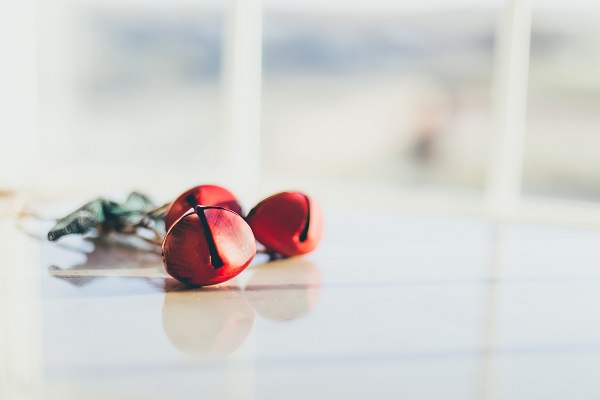
ON ONE OF the coldest days during winter, I sat opposite a Cambodian scholar who had run to exile for his political views. His dissent against the government of Cambodia led him to organize a political organization with a friend. With his friend having been assassinated, he ran away with his wife to a country that is far from his home.
We were in Cambridge; it was 2019 and both of us were exiles of different nature. I looked into the brownness of his eyes and found a kind of longing, a reflection of decisions that led to this city. He bore the weight of his friend’s death, the weight of leading his wife to exile, the weight of leaving a country with the knowledge that corrupt power wielded by the elite broke him and ran him out. What he had to carry will break any person, but we were there, in that café waiting for our cups of coffee. I had placed order for a small cup, black without sugar or cream. It is said that what we seek in the eyes of others are what we seek in ours, for the ancient ones who lived before the days of mirrors had nowhere to gauge their beauty except in the bodies of water or in the eyes of those they love. I had often wondered about the place of water in exile. Do people often look at rivers in their new cities and say to themselves: this water is different? Rivers, streams, seas have personalities. Often I look at the Charles river and say to myself, this river will never know me. I asked my friend, if he regrets his decision, if he misses home. He smiled and said, Romeo, let’s drink our coffee.
ON MY WAY home, snow fell from the dark sky. I watched light from streetlamps shine through them. It felt as if I was wandering through the dark, through loneliness. Yet, despite my loneliness, there was hope around me, there were friends who called to check on me. Once, I caught myself reflecting on every decision I had made, it was during a dinner where I was the only black person among a sea of white guests. The waiters were blacks and Hispanics. I bowed my head and muttered thanks each time any of them came to put down or pick up full or half-empty plates. Was I embarrassing them? I wondered as I sat with my unease. They were doing honest labor in a place where the odds to climb out of their social status and sit in fancy dinners was against them. I also wondered if it was fair to be served by them, for having lived for a while in America I know a little about the struggle of black people here.
Perhaps, my greatest problem was the class divide. I had exchanged a country where my queer body was illegal to exist in its fullness for a country were black people and other people of color have to fight against the odds stacked against them. Sometimes I do regret certain decisions. Sometimes, it feels like I would have fared better mentally if I had moved to an African country. But regret is a luxury, one that comes fully to those who have distance and the privilege of looking back at what seeks to kill them. For others still in the middle of the battle to survive, regret comes in bits and fits. People fought to bring me here. I have to stay alive as a form of gratitude. I have to survive, but how do I do that while I watch others struggle to make ends meet? A friend who was homeless for years in Boston, whom I met during a stint at the hospital said to me: I live because there is hope. Her words still echo in my being. My mother before she died could have said those words, but what is hope?
The Mahabharata says, “of all the world’s wonders, which is the most wonderful?”
“That no man, though he sees others dying around him, believes that he himself will die.”
I remember reading those words in Annie Dillard’s For The Time Being. After reading them, I stood up from my chair, walked to the window and stared into the calm blue sky. I was angry, for having lost both my parents, having lost friends to gunshots in cult fights, having lost friends in the Mediterranean Sea, I had managed to hold onto the delusion of living for a long time. I no longer have that power of delusion. Death had found me in Udi and after finding me unworthy, left its calling card in my heart. It said, life is worthless, like a flame it is quick to die. The delusion of everlasting life is needed to look toward tomorrow in a world where time is a bird, so quick to fly, so quick to be caught in a bush fire, so quick to burn. The delusion of living forever is what gives us the hope of resurrection from sleep each time we lay our head at night.
In The Stone Virgins, Yvonne Vera writes, “Time is as necessary for remembering as it for forgetting. Even the smallest embrace of pain needs time larger than a pause….” I had carried with me the things I wish to forget. Like an endangered bird tagged with a ring on its left leg, I had carried the memories I wish to forget from Nigeria to Ghana, Burkina Faso, Mali and now to the United States. For the first time in two years I am beginning to create home, but with every creation there is the gift of time, of remembering what was, of duplicating the things I can’t leave behind, of sitting in places that are not home but are familiar, such that when I close my eyes the memories come like a dream seeking for a door into my consciousness.
It began when the 2017 Brunel International African Prize for Poetry was announced. Immediately after the announcement I received some messages on Facebook, they were messages of insults, threats and harassment. I had thought that like all things viral, it will end in a week, I had no idea how much people are obsessed with the genitals and sexual practices of other people, including strangers. Days after these messages, someone who is not even worthy to be mentioned sponsored a Facebook post alleging that I was given money by the West to sponsor homosexuality in Nigeria. When I saw the post and the comments of people, I thought it was pitiful, I thought it was just someone seeking relevance, but the work of hate is relentless, all it needs is an idea and it becomes a beast seeking for whom to devour. Days after that post, I was physically attacked in Udi. I used to be naïve, I used to believe that the goodness of our hearts will save us from evil, but evil corrupts all it touches.
While I stayed in Udi after the attack, things were no longer the same, death had touched me and showed me the uselessness of mortality. I left Udi after the kidnap and release of Chibuihe. I didn’t feel safe anymore. Amnesty Nigeria offered me a safehouse in Minna and I lived there before the NGO operating the safehouse forced me to leave. We were to be given a stipend but we had to fight before the money was given to us, people were starving and I got fed up. I thought and still think that queer people are currencies for most of the pro LGBT NGOs in Nigeria. Apart from TIERS, most of them are set up to move donor funds to their personal pockets. We are cash cows, they know this. Sometimes I think the law against queer people will not be repealed in my lifetime, there are so many people profiting from it, from religious organizations, to the government using us to buy goodwill from a frustrated populace, to NGOs sharing lubes and condoms. While I was in Minna, an NGO asked me to pay eight hundred thousand naira, so they can help me to get a visa and leave the country. In the US when I was considering applying for asylum, a prominent gay Reverend who runs an NGO in the UK asked me to pay six hundred dollars before he would write, in his words, a country profile. I wonder how many people without help have fallen prey to this scheme.
The problem with marginalized people fighting against oppression is that most times it creates power-hungry monsters, monsters who will go on to inflict pain on members of their communities. People eventually become the things they fight against. Power corrupts even the brave, the solution is to always ask, where is the center? Am I there, am I one of them, what are my duties?
IN PORTLAND, AFTER a reading, a woman walked up to me. She was in tears. “You are courageous,” she said. I replied, “if I am courageous, I will be in Nigeria fighting”. I do not delude myself; I am a witness to the plunder of my body and the bodies of other lower-class queer people. A fighter, I am not. I am wary of power, of how the constant upliftment of the simple act of writing poetry to the act of warfare creates a power bubble around me. I am always quick to reject it. Someone I loved once said it is moral ground-standing, but we must always question our relation to power and its structure, the poet must always be on the fringe of society, the poet must always witness and rebel against every form of power, for even the most benevolent society is a step away from fascism.
Queer voices are now at the forefront of Nigerian literature, even if we are still denied access to Festivals, Awards and other spaces where Nigerian literary politics reign supreme. In queering every genre, we have given lifeblood to literature and made it vibrant. From the genre-bending works of Akwaeke Emezi, the short stories of Arinze Ifeakandu, the essays of Olutimehin Adegbeye, the poetry of Logan February, the curatorial works of the writer, Otosirieze Obi-Young, we have showed that if Nigerian literature needs to find a new direction, then it is to us that it needs to come to because it needs us more than we need it.
There is room for every queer voice seeking to write. We need more diverse stories, we need more voices. If Kabaka will exist with me as the Managing Editor, it must do more than create space for marginalized voices; we must find a way to offer remunerations, we must create spaces for the development of young queer writers, for us to continue to scream without doing our part is to say we can’t do more than create space. For while some of us are in the West drinking coffee, others are still trying to find love and express desire in a society that is always at their windows, hunting them, especially those from the lower-class. There are those for whom the simple act of sex without being caught is a triumph, we should never forget. We all can’t be martyrs and it is alright, but we must do the best we can. The world is never saved in grand messianic gestures, but in the simple accumulation of gentle, soft, almost invisible acts of compassion, says Chris Abani.
Compassion can be an act of rebellion, I know this. I have found compassion in the eyes of many, I have tried to pass it on to others. The gift of survival is to be shared, often times the gift of survival leads us to be the first in our fields of endeavor. I rejoice for the publications of groundbreaking books, from Frankie Edozien’s Lives Of Great Men, Unoma Azuah’s Blessed Bodies, Chinelo Okparanta’s Under The Udala Trees, Jude Dibia’s Walking In Shadows, Akwaeke Emezi’s Freshwater, Olumide Popoola’s When We Speak of Nothing, the anthologies of 14, and others. These are books that said we are here at a time when we needed to be heard, they did for literature what Bisi Alimi did for the visibility of queer people living in Nigeria when he became the first gay man to come out live on national television. There was a time for pioneers, that time has passed. Queer people are everywhere online, from Twitter and Facebook, we are out, bold and loud. What we need now is to challenge a law that says we can’t live our lives in the open except we belong to the upper-class, that is the next huddle.
We do not need messiahs. The desire to be the first to do anything right now is not valuable if it doesn’t lead to the path of total freedom for all queers. This is why I was disappointed in Bisi Alimi’s so-called first Pride March or Party, apart from the fact that queer people and organizations have had parties, have always celebrated queerness, it is misleading and begs the question, why the need to call it the First Pride when it was a party for a select few? For whom is Bisi Alimi dancing to, donors or the community he claims to love? He claims he was protecting people that’s why he only invited a few, but when we start playing god and begin to decide who gets access to certain places, we are playing politics. The fight for queer freedom everywhere has been one of unified dissent, people should be allowed to make their decisions. We have had our agency to associate freely ceased by a homophobic heterosexual public, the last thing we need is one of our own ceasing it. There is always the need to question our relation to power, for how did Bisi Alimi go from a hero to someone people now look at with clean glasses before believing anything he says?
In an Anglican church in Udi, there is a bell tower. The bell rings at certain hours, calling the faithful to congregate. While living in Udi, I had noticed that after the bell stops ringing there is a holy silence. During these seconds I hear my thoughts as if someone was behind me, speaking into my ears and without failing another bell, a small bell, will ring and break the silence. I used to wonder who was behind the second bell, then I found out it was a little child, the son of one of my colleagues. The big bell of the queer movement in Nigeria has rang, works have been produced, people have led, suffered and paid the price, including Bisi Alimi, who despite his shortcomings has suffered and has been at the forefront of the movement. The small bell is tolling, the field is ripe, there are cutlasses everywhere. They call to those who are selfless, who are willing to put egos behind and work for the freedom of us all. I can’t wait to work behind those who can embrace power without its corruption, who know the weight of the work and are willing to do it, not for personal glory but for the freedom of us all. These times call for us to put our shoulder to the wheel, it calls for small acts of protest, everyone is needed. I am willing to do my part, as are a lot of others. There is still space, still room for more shoulders. We do not need power-hungry leaders, what we need is a collective, a unified voice of dissent. The small bell tolls, listen to it in your spirit, are you ready?
ABOUT THE AUTHOR
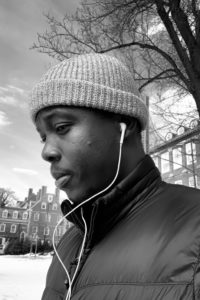 Romeo Oriogun is the author of “Sacrament of Bodies” (The University of Nebraska Press, spring 2020) and “The Origin of Butterflies”, selected by Kwame Dawes and Chris Abani for the APBF New-Generation African Poets Chapbook Series. His poems have appeared or are forthcoming in Prairie Schooner, American Poetry Review, Michigan Quarterly Review, Harvard Review, Narrative Magazine, Brittle Paper, and others. He currently lives in Iowa where he is an MFA candidate for poetry at the Iowa Writers’ Workshop.
Romeo Oriogun is the author of “Sacrament of Bodies” (The University of Nebraska Press, spring 2020) and “The Origin of Butterflies”, selected by Kwame Dawes and Chris Abani for the APBF New-Generation African Poets Chapbook Series. His poems have appeared or are forthcoming in Prairie Schooner, American Poetry Review, Michigan Quarterly Review, Harvard Review, Narrative Magazine, Brittle Paper, and others. He currently lives in Iowa where he is an MFA candidate for poetry at the Iowa Writers’ Workshop.


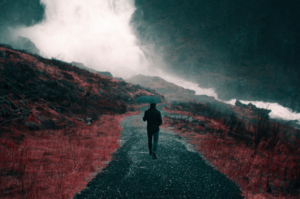
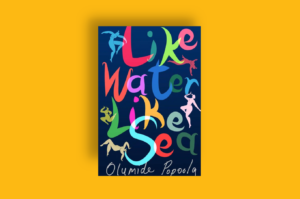
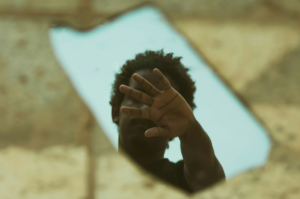
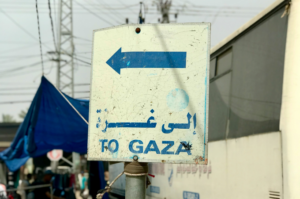
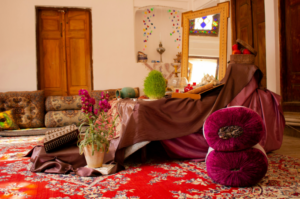
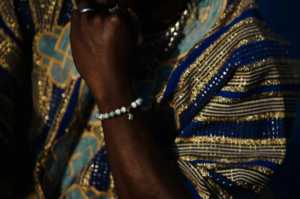

Despite Strict International Laws, Challenges Abroad, Young Africans are Still Crossing Borders - Afrocritik July 05, 2022 09:04
[…] UK after facing attacks for coming out as gay on national television in 2014, and also the poet, Romeo Orogun who relocated to the US to seek […]